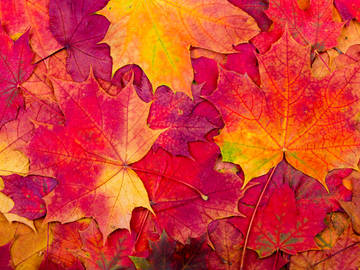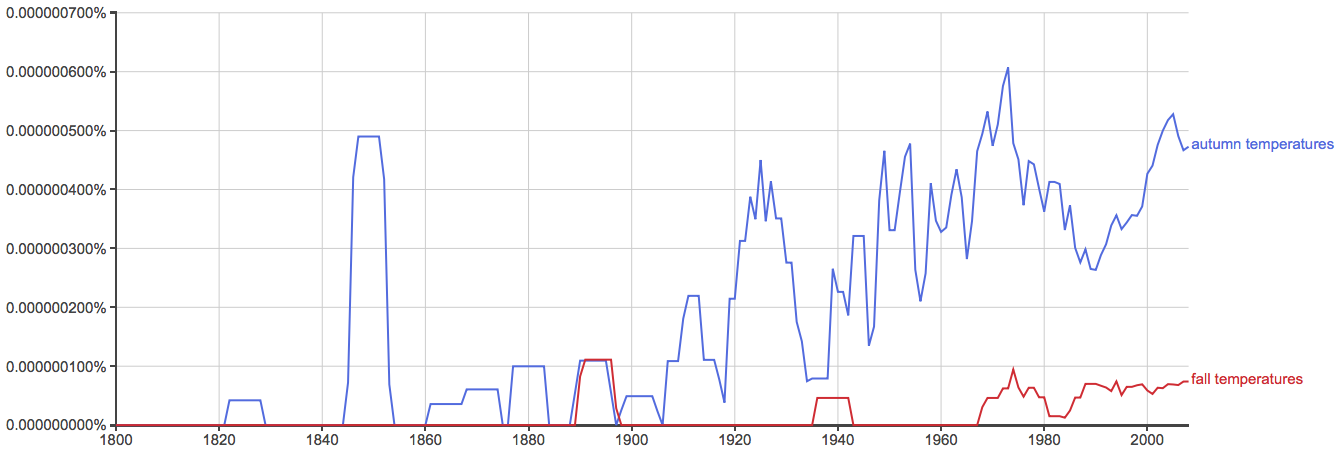21 сентября 2018
Не секрет, что американский английский отличается от истинного, британского. Если в Англии мы пойдем в shop, то в Америке это уже будет store. Конечно, вас поймут, если вы используете «неродное» слово для этого региона. Но если вы знаете американские аналоги английских слов, то вы будете намного быстрее пониматься все вокруг и отлично ориентироваться на местности. Мы выбрали самые популярные слова, которые вы можете встретить везде: в аэропорту, магазине, ресторане и просто прогуливаясь по городу.
British English — American English
Быт
- bin – trash can – мусорное ведро
- lift – elevator — лифт
- flat – apartment – квартира
- autumn – fall – осень
- cooker – stove – кухонная плита, печь
- tap – faucet – водопроводный кран
- postal code, postcode – zip code – почтовый индекс
- dustbin – garbage can, trash can – бак для мусора
- rubbish – garbage, trash – мусор
- surname – last name, family name – фамилия
- holiday – vacation – каникулы, отпуск
- queue – line – очередь
- cinema – movie theater – кинотеатр
- film – movie, film – фильм
- mobile phone, mobile – cellular phone, cell phone – мобильный телефон
- bill – check — счет
- book a seat – reserve a seat – забронировать место
Одежда
- trainers – sneakers – кроссовки
- trousers – pants – штаны
- pants (трусы мужские и женские) – underpants (мужские трусы)
- purse (кошелёк) – purse (женская сумочка)

Город
- shop – store – магазин
- car park – parking lot – парковка
- taxi – cab – такси
- pavement – sidewalk – тротуар
- pharmacy – drugstore – аптека
- crossroads – intersection – перекрёсток
- underground, tube – subway – метро
- railway – railroad – железная дорога
- single ticket / a single – one-way ticket – билет в одну сторону
- petrol – gasoline, gas – бензин
Еда
- biscuit — cookie – печенье
- chips – French fries – жареный картофель
- crisps, potato crisps – chips, potato chips – чипсы
- sweets – candies – конфеты
- tin – can – консервная банка
Это была первая статья из серии «Британский vs Американский». В других статьях рассмотрим нюансы в написании слов, фонетике и грамматике. Stay tuned! 
Британский vs Американский: написание слов
Британский vs Американский: грамматика
Все статьи
Подписывайтесь на наши обновления
В нашей рассылке отсутствует спам (да, мы тоже его не любим ). Присылаем секретные учебные материалы,
анонсы мероприятий и скидки на наши курсы. Не пропустите! Отписаться можно в любую секунду.
Закрыть
Запишитесь на бесплатное занятие
На уроке мы вам расскажем и покажем, как работает методика Lingua Target, протестируем вас, составим подходящую программу обучения и ответим на все интересующие вопросы! Мы будем рады вас видеть!
Спасибо!
Ваше письмо успешно отправлено. Как только запрос будет обработан, мы свяжемся с Вами. Stay
tuned!
Произошла ошибка!
К сожалению мы не смогли отправить ваше сообщение, т.к. произошла ошибка сервера. Keep calm!
Закрыть
Узнать больше об этом курсе
Менеджер нашей компании свяжется с вами для подтверждения записи на курс.
Спасибо!
Ваше письмо успешно отправлено. Как только запрос будет обработан, мы свяжемся с Вами. Stay
tuned!
Произошла ошибка!
К сожалению мы не смогли отправить ваше сообщение, т.к. произошла ошибка сервера. Keep calm!
Закрыть
Опишите Ваши впечатления
Мы будем чрезвычайно рады как вашим положительным отзывам,
так и предложениям по улучшению курсов и условий обучени. Давайте сделаем English Forward лучше
вместе!
Спасибо!
Ваш отзыв успешно отправлен. Как только отзыв будет обработан менеджером, мы разместим его на сайте. Stay
tuned!
Произошла ошибка!
К сожалению мы не смогли отправить ваш отзыв, т.к. произошла ошибка сервера. Keep calm!
Закрыть
Ответим на все вопросы
Оставьте свои контактные данные, и наш менеджер свяжется с Вами в течение рабочего дня! До связи!
Спасибо!
Ваша заявка успешно отправлена. Как только запрос будет обработан, мы свяжемся с Вами. Stay tuned!
Произошла ошибка!
К сожалению мы не смогли отправить ваш отзыв, т.к. произошла ошибка сервера. Keep calm!
Закрыть
Как мы можем помочь Вам?
Мы будем рады ответить на любой интересующий Вас вопрос. Оставьте его в форме ниже, мы ответим на него в ближайшее свободное время!
Спасибо!
Ваш вопрос успешно отправлен. Как только запрос будет обработан, мы свяжемся с Вами. Stay tuned!
Произошла ошибка!
К сожалению мы не смогли отправить ваш вопрос, т.к. произошла ошибка сервера. Keep calm!
Закрыть
Хочу скидку
Хотите узнать о текущих акциях и предложениях? Оставьте нам ваш телефон и email, мы свяжемся с вами и предложим лучший вариант!
Спасибо!
Ваша заявка успешно отправлена. Как только запрос будет обработан, мы свяжемся с Вами. Stay
tuned!
Произошла ошибка!
К сожалению мы не смогли отправить ваше сообщение, т.к. произошла ошибка сервера. Keep calm!
You may have heard the British use the word “autumn” to describe the time of year that ends summer and turns to winter or in simpler terms, the third season.
But why do they use a different word?
Both “fall” and “autumn” were used as part of the English language to describe the third season of the year.
But the older of the two is “autumn.”
When was the first appearance of the word autumn?
It was first used in English writing in the 14th Century and it comes from the Latin word “autumnus,” although it is still a mystery where the word “autumnus” stems from.
Over time autumn became a popular word to use, as prior to this it was referred to as “harvest.”
This was quite often disputed over because the window to harvest varied depending on crops and location.
This is because English speakers considered the year to have only two seasons, summer and winter.
Focusing mainly on the coldest and warmest parts of the year, therefore there was no need for a word to describe “harvest.”
By introducing the word “autumn,” it became a word to describe the transition between summer and winter in a clearer, less disputed way.
Where did the word “fall” come from?
Over time, poets became interested in describing parts of the year in romantic ways, and this is when “fall” appeared for the first time to replace the use of the word autumn.
During the 16th Century, writers continued to be amazed with the time of year and came up with the term “fall of the leaf”.
This was used in conjunction with “spring of the leaf” to describe these transitional times of the year.
Eventually the terms were shortened to “spring” and “fall.”
Shortly after this time, Britain’s empire was expanding fast, and in turn, that meant the English language was becoming widespread.
One area of the world in particular that it heavily influenced was North America.
As time went on the English that was spoken in America and the English that was spoken in England began to grow apart and develop upon its own accord.
There was less contact between the two areas and this influenced the language being spoken in the two different continents.
So the reason why Americans use fall and British use autumn, is because around the same time the English went over to North America, the most popular word to describe the third season had changed from autumn to fall.
It was in this time that the English language was taken over to North America.
As the two continents became more independent and there was less contact, fall was still used in North America, whilst Britain reverted back to using the word autumn.
Autumn and fall are used interchangeably as words for the season between summer and winter. Both are used in American and British English, but fall occurs more often in American English. Autumn is considered the more formal name for the season.
The trees are turning; the weather’s getting cooler; Pumpkin Spice Lattes are back—it’s fall!
No, that one friend who cares deeply about English tells you: it’s autumn. So how did two completely unalike words come to refer to the same season?
Both ‘autumn’ and ‘fall’ originated in Britain. So why is ‘fall’ primarily used in America?
The older of the two words is autumn, which first came into English in the 1300s from the Latin word autumnus. (Etymologists aren’t sure where the Latin word came from.) It had extensive use right from its first appearance in English writing, and with good reason: the common name for this intermediary season prior to the arrival of autumn was harvest, which was potentially confusing, since harvest can refer to both the time when harvesting crops usually happens (autumn) as well as the actual harvesting of crops (harvest). The word autumn was, then, a big hit.
Names for the season didn’t just end with autumn, however. Poets continued to be wowed by the changes autumn brought, and in time, the phrase «the fall of the leaves» came to be associated with the season. This was shortened in the 1600s to fall.
Around this time, England’s empire was fast expanding, which meant that the English language was going places. One place it went was to the New World, and it set up shop in North America in the 1600s. As time went on, the English spoken in America and the English spoken in Britain diverged: there wasn’t as much contact between the two groups of English speakers. Throw into the mix the independence of the United States, and the fact that the type of English spoken in America became part of our early national identity, and the gulf between the two dialects of English widened.
A handful of words got caught in the identity crisis, and fall was one of them. Both autumn and fall were born in Britain, and both emigrated to America. But autumn was, by far, the more popular term for quite a long time. In fact, the «autumn» sense of fall wasn’t even entered into a dictionary until 1755, when Samuel Johnson first entered it in his Dictionary of the English Language.
By the middle of the 1800s, American English and British English had diverged, and so had fall and autumn. One early American lexicographer, John Pickering, noted in his entry for fall:
A friend has pointed out to me the following remark on this word: «In North America the season in which this [the fall of the leaf] takes place, derives its name from that circumstance, and instead of autumn is universally called the fall.»
—John Pickering, A Vocabulary, or Collection of Words Which Have Been Supposed to Be Peculiar to the United States of America, 1816
We aren’t sure why fall flourished in the United States—Pickering’s friend gives us no further particulars—but by the mid-1800s, fall was considered to be entirely American by American lexicographers. Fall is still occasionally used in countries where British English is spoken, but usually only in a handful of fixed phrases, like spring and fall.
Some writers use fall to describe the season just before winter, and other writers use autumn to mean the same thing.
Which word is correct? Does it even matter?
In reality, these words are interchangeable in most contexts. Sometimes, one or the other might be preferred, but at least today, both words are accepted in the context of seasons.
What are those rare instances where autumn is a better choice than fall, or vice versa? I’ll discuss them in this post.
What is the Difference Between Autumn and Fall?
In this post, I will compare autumn vs. fall, both of which refer to the season that follows summer. I will use each word in example sentences, so you can see it in context.
Plus, I will show you a helpful memory tool that you can use to help you decide whether autumn or fall more accurately describes the season to which you refer.
When to Use Autumn

Autumn is an old word—it has origins in Latin and carried through to modern use through Middle English. It was first recorded in its current form in the 14th century.
The sentences below are examples of the correct use of autumn.
- Every autumn, John goes into the woods behind the cabin and draws maple syrup from the old trees, just like Grandpa used to do.
- In the Northern Hemisphere, autumn is typically a season of falling temperatures and brightly colored leaves.
- The goats eventually learn to do it themselves. In the autumn, when there is little food on the ground, they spend most of their time grazing the treetops. –The New York Times
When to Use Fall

For example,
- This fall, Dana will be in 11th grade at Mickey Mantle High School.
- I started a new job last fall as foreman of a construction company.
- Honeywell International Inc. will decide whether to break off its aerospace division by the fall, the company said Tuesday, and it continues to work with advisers after activist Third Point LLC made a public push last month for a spinoff. –The Wall Street Journal
Fall is also a very old word, and has been used to describe the autumnal season for several centuries. It is more popular in American than British English, as the charts below demonstrate.
Fall vs. Autumn in American English
Fall vs. Autumn British English
Fall or Autumn? When to Use Each
At least in the context of seasons, these words are more or less interchangeable. There is a clear preference for autumn in British English and for fall in American English.
Both words are accepted in both usage communities, though. You could get away with either, although British readers will probably raise an eyebrow if you use fall whereas American readers wouldn’t bat an eye if you used either word.
Autumn is the more formal of the two, and, in America at least, people might look at you strangely if you routinely used autumn instead of fall in your daily conversation. In writing, however, no one will take any notice. Both terms are interchangeable.
Summary
Is it autumn or fall? Autumn and fall are words for the season that happens between summer and winter. Fall also has several other meanings.
To summarize,
- Both words are standard.
- Autumn is a more formal way to refer to the season.
- Fall is less formal than autumn.
- Both words are interchangeable.
Contents
- 1 What is the Difference Between Autumn and Fall?
- 2 When to Use Autumn
- 3 When to Use Fall
- 4 Fall or Autumn? When to Use Each
- 5 Summary
alithanephi475
Вопрос по английскому языку:
Do you know American equivalents for the British words «biscuits,»sweets»,»autumn»
Трудности с пониманием предмета? Готовишься к экзаменам, ОГЭ или ЕГЭ?
Воспользуйся формой подбора репетитора и занимайся онлайн. Пробный урок — бесплатно!
Ответы и объяснения 1
joutemowo
Biscuits — cookies
sweets — candies
autumn — fall
Знаете ответ? Поделитесь им!
Гость ?
Как написать хороший ответ?
Как написать хороший ответ?
Чтобы добавить хороший ответ необходимо:
- Отвечать достоверно на те вопросы, на которые знаете
правильный ответ; - Писать подробно, чтобы ответ был исчерпывающий и не
побуждал на дополнительные вопросы к нему; - Писать без грамматических, орфографических и
пунктуационных ошибок.
Этого делать не стоит:
- Копировать ответы со сторонних ресурсов. Хорошо ценятся
уникальные и личные объяснения; - Отвечать не по сути: «Подумай сам(а)», «Легкотня», «Не
знаю» и так далее; - Использовать мат — это неуважительно по отношению к
пользователям; - Писать в ВЕРХНЕМ РЕГИСТРЕ.
Есть сомнения?
Не нашли подходящего ответа на вопрос или ответ отсутствует?
Воспользуйтесь поиском по сайту, чтобы найти все ответы на похожие
вопросы в разделе Английский язык.
Трудности с домашними заданиями? Не стесняйтесь попросить о помощи —
смело задавайте вопросы!
Английский язык — язык англо-фризской подгруппы западной группы германской ветви индоевропейской языковой семьи.





